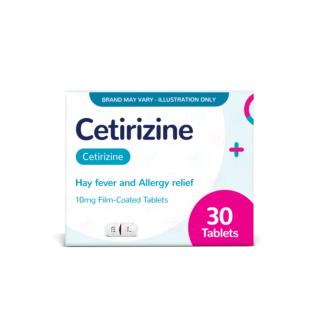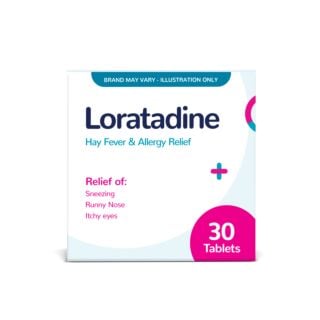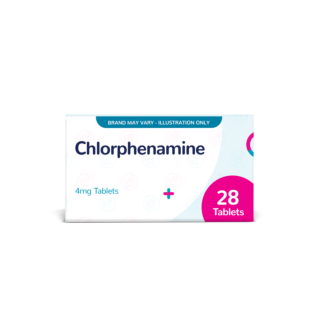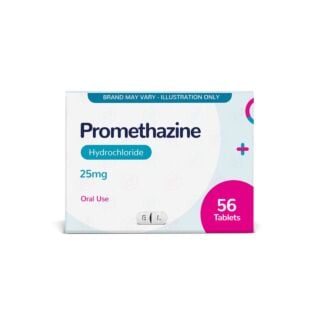Can I take two kinds of hay fever medication at once?

Some hay fever sufferers may even find that when they do find a hay fever medication that works, it doesn’t completely eliminate all of their annoying symptoms.
If you’ve ever found yourself in this situation, you may start to wonder if one kind of hay fever medication is enough, and whether it would be safe to take more than one at the same time.
Different medications, including antihistamines used to treat hay fever, can be problematic when taken together, so it’s better to be safe than sorry.
Before you give into temptation and think about going out to buy another hay fever medication to use alongside your first one, let’s take a look at the facts and make sure you’re doing the right thing.
What are antihistamines?
You might have heard the word antihistamine used when talking about remedies for hay fever, but what are antihistamines? Well, the short answer is that antihistamines work to block histamine in your body.
Histamine is a natural substance that is created in your body when you have a reaction to something your body is allergic to, like pollen or pet hair.
Histamine tells different parts of your body to react to irritants like pollen, making your nose run and your eyes itch, and causing coughs and sneezes.
Antihistamines block histamine, preventing it from telling your body to react; that’s how antihistamines help to relieve hay fever.
Why would I need to take two antihistamines?
If your hay fever is particularly bad, you may find that one over-the-counter antihistamine is not enough to improve your symptoms.
This is when you should speak to your doctor about your treatment options and what is best for you.
In some cases, your doctor may decide that you need to take two antihistamines for a while to help manage extreme itchy skin rashes caused by hay fever or possibly to manage other extreme cases of hay fever.
However, only your doctor should suggest this, and you should never decide to do it without speaking to them first.
If you don’t take your doctor’s advice, you could accidentally take too much of the same antihistamine, which could make you seriously ill.
If antihistamines are taken together, you could also be at risk of more severe side effects caused by either medication, so this is no joke. Be smart, listen to your doctor and don’t take this decision into your own hands.
If your doctor decides that two antihistamines are the best choice for you, they may suggest that you should take two different types of antihistamines for the best results.
But what is the difference between types of antihistamines? Let’s find out.
What types of antihistamines are there?
The simplest difference between antihistamines is that some can make you feel drowsy, and some will not.
Many non-drowsy antihistamines are newer medications designed to reduce the chances of making you feel sleepy, whereas drowsy antihistamines are typically older.
One reason your doctor might ask you to take two antihistamines for a while is that your hay fever could be keeping you up at night.
Insomnia is a common side effect of hay fever, so if you need a little extra help getting to sleep during pollen season, your doctor might ask you to take a drowsy antihistamine before you go to bed.
Again, taking two antihistamines in this way is something that only your doctor should recommend.

What kinds of hay fever medications are non-drowsy?
So, we know that there are drowsy and non-drowsy hay fever medications, but which is which?
Let’s start with non-drowsy. Here’s a list of antihistamines that are considered to be non-drowsy and which medications you can find them in:
- Loratadine – is found in Haylief, Clarityn, and generic tablets.
- Cetirizine – is found in Benadryl, BecoAllergy, Pollenshield, and generic tablets.
What kinds of hay fever medicines can make me drowsy?
Now we know which antihistamines are non-drowsy, we can take a look at our drowsy antihistamines, too.
We’ve got another handy little list of drowsy antihistamines and where to find them:
- Chlorphenamine – is found in Piriton, Pollenase, and generic tablets.
- Promethazine – is found in Phenergan.
Will loratadine make me drowsy?
So those who have been paying attention to our little lists (don’t worry, we’re not judging if your itchy hay fever eyes made you want to skip some reading) will have realised that loratadine falls under non-drowsy antihistamines.
Loratadine is much less likely to make you feel drowsy than other antihistamines on the market, which is great for those who need to drive or operate machinery.
Can I take loratadine and Piriton together?
Some of our eagle-eyed readers will have worked out that Loratadine and Piriton aren’t just different antihistamines, but they fall into two different categories of antihistamines.
Loratadine is a non-drowsy antihistamine, whereas Piriton contains Chlorphenamine, a drowsy antihistamine.
This means that you could take Piriton and Loratadine together and use this combination to help you fall asleep.
Just remember that you should only do this if your doctor recommends it. They know the risks and the best ways to keep you safe and healthy.
Can I take cetirizine and Piriton together?
Did any of you take a quick look back at our lists to see if you could answer this question for yourselves?
If you did, you’d know that cetirizine and Piriton contain two different antihistamines, so they can be taken together, too!
But again, always speak to your doctor before taking two antihistamines at once.
Every medication is different, so taking them together will pose different risks that your doctor will be aware of.
Can I take antihistamines and painkillers together?
If you have hay fever, one of the most common side effects you may experience is a headache.
This can be caused by the allergic reaction itself or by pressure that builds up in your blocked sinuses.
At times like this, you might want to turn to paracetamol or ibuprofen to ease your headache, but is this safe?
Well, you’ll be happy to learn that paracetamol and ibuprofen don’t react with most antihistamine medications.
However, you should always read the patient information leaflet on every medication carefully before taking it at the same time as another medicine.
These leaflets will let you know which medications will interact, and when you should not use certain medications together.
If you’re still unsure whether your hay fever medication can be taken with paracetamol or ibuprofen painkillers, speak to your doctor or Chemist4U pharmacist.
They’ll be able to answer all of your medication questions.

Well, now we know that antihistamines can be taken together to treat hay fever, but before we go, we’re going to take a moment to remind you to be safe.
Only take two antihistamines at once if your doctor recommends it. They’re the ones with the knowledge, so listen to what they have to say!
In addition, always read the labels on your medications very carefully. This is the best way to be sure that none of them will interact and cause potential health problems. This is serious stuff, so take the time to read up.
Finally, if you have any questions, don’t hesitate to give us a call! Our friendly Chemist4U pharmacists will be happy to give you any advice you need about hay fever or any other medical problem.









